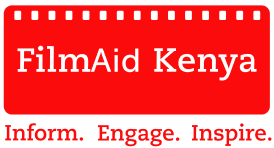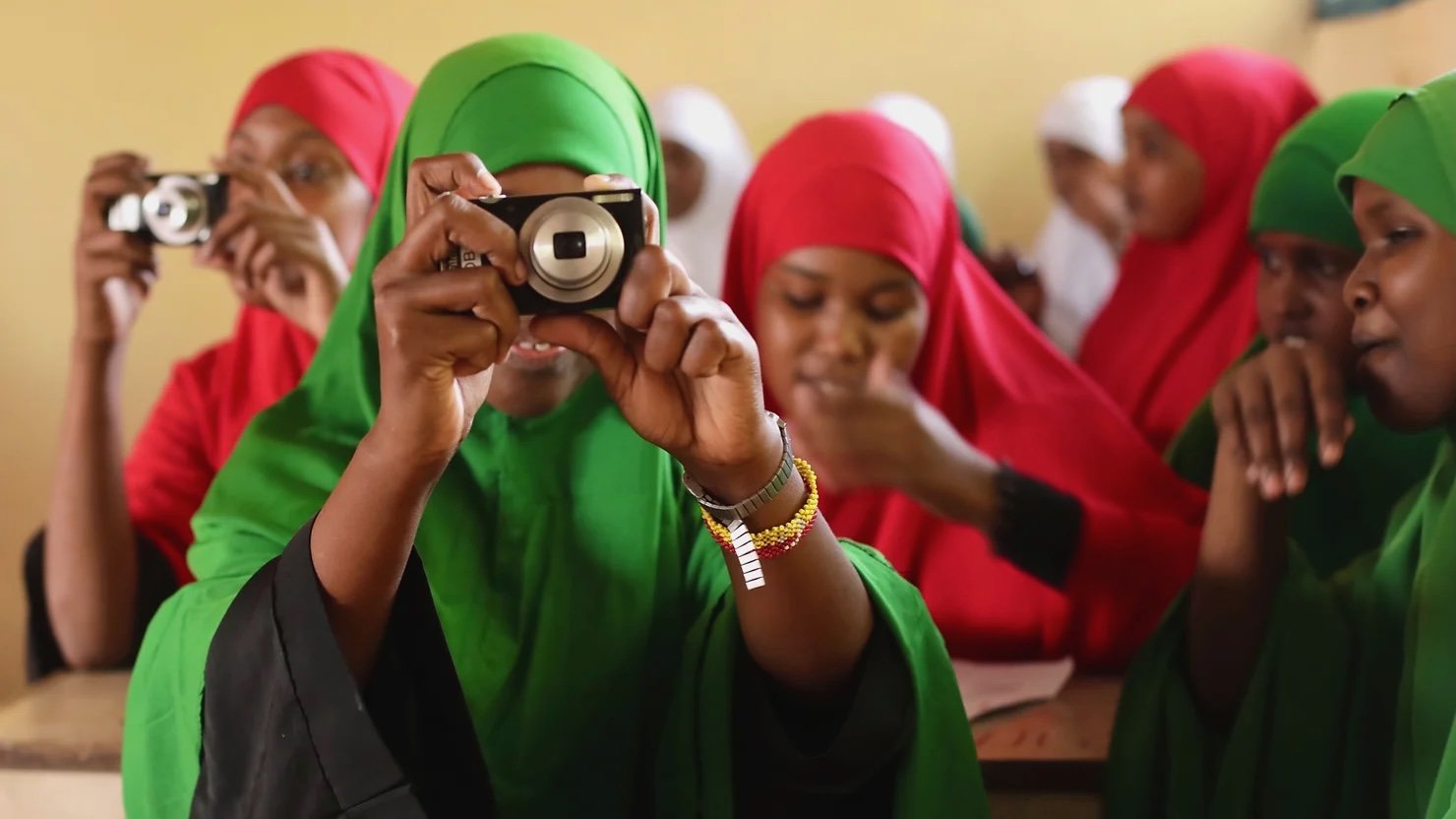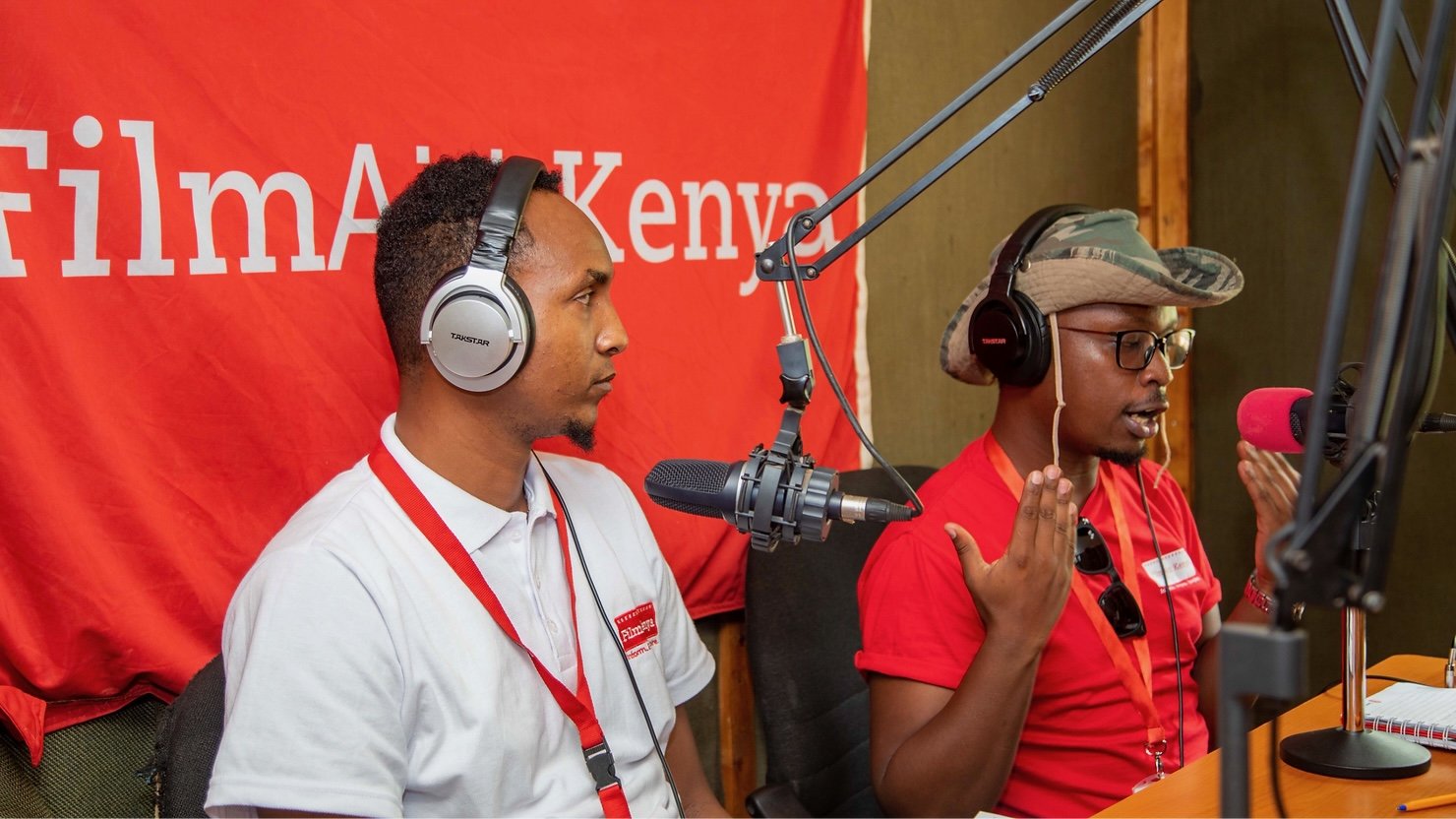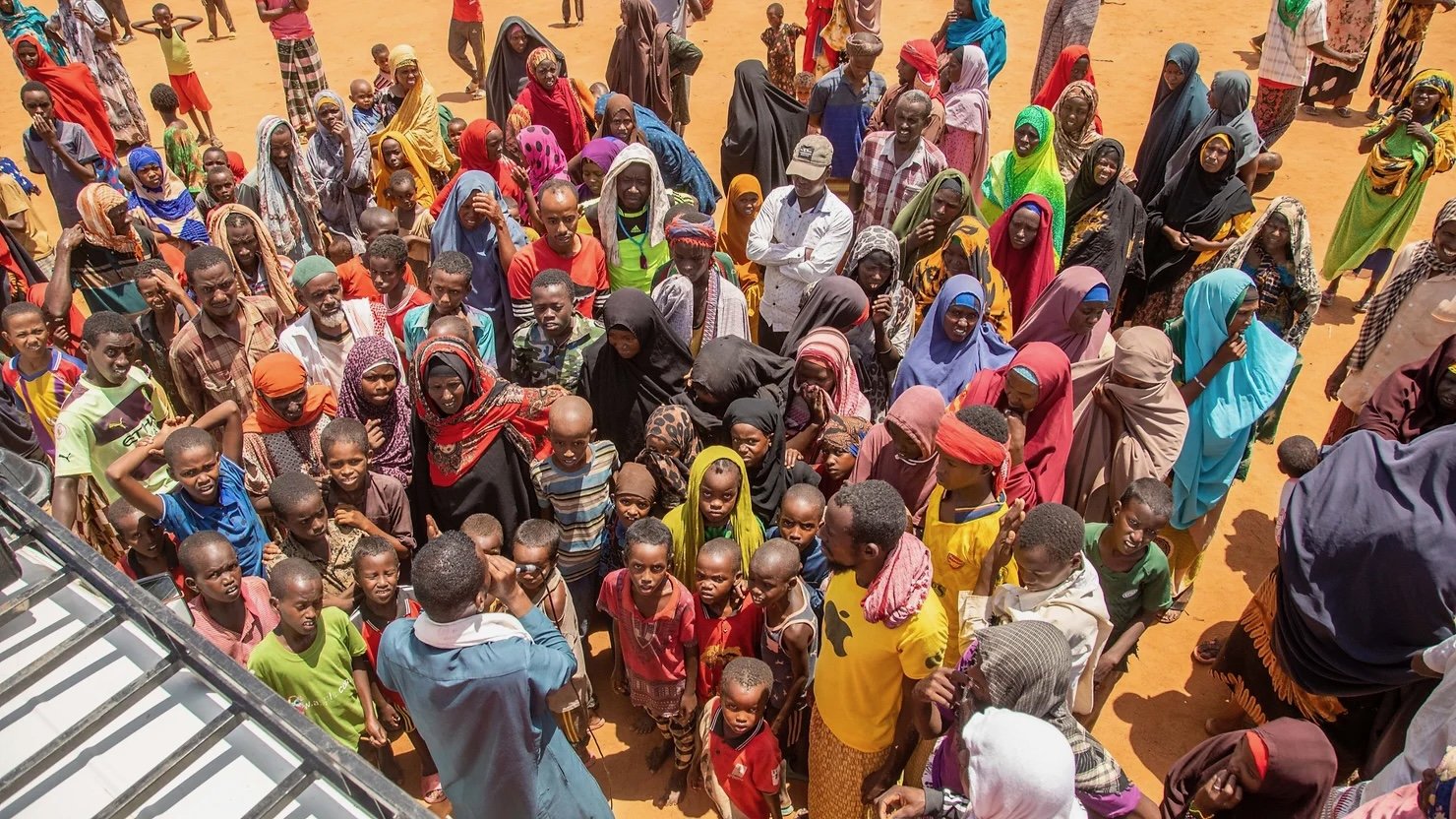A Spotlight on... FilmAid Kenya
By Mike Piddock
Part of the GoodFX Theory Of Change is to shine a light on small charities doing incredible work. Today, we're putting a spotlight on FilmAid Kenya, a remarkable organisation that uses the power of film and media to transform the lives of refugees and the local communities they serve. We had the opportunity to speak with Stella Suge from FilmAid Kenya, who shared the organisation's inspiring journey and impactful work.
FilmAid was born out of necessity during the Macedonia crisis in 1999, where the charity’s founder recognised that refugees, despite their dire circumstances, were also profoundly bored. What began as a mission to entertain and provide psychosocial relief to refugees in camps by screening Hollywood films became a multifaceted organisation that utilises film and various media to educate, inform, and empower refugee communities.
Stella explains:
"The initial concept was simply about bringing people together to watch films, to provide a respite from the harsh realities of displacement. Over time, FilmAid has transformed into a platform that not only entertains but also educates and informs on critical issues affecting these communities."
From its humble beginnings, FilmAid Kenya has grown into a powerful force for change. It holds large screenings with meaningful content, provides participatory video training to communities, and collaborates with UNHCR, WFP and other actors to address critical informational needs including the prevention of exploitation of affected communities.
Most impressively, FilmAid Kenya has developed a model of producing relevant multimedia content in multiple languages and disseminating it within communities via twelve different channels, from theatre and radio to social networks, giving it a level of segmentation and targeting sophistication akin to a multinational media agency.
"We use different channels of distribution based on the population and their information consumption preferences."
FilmAid's impact in Kenya
Since its arrival in Kenya, FilmAid has significantly expanded its scope. The organisation conducts large screenings that can attract thousands of viewers at a time. These events combine entertainment with educational content that addresses practical matters such as legal rights, health information, and social services available to refugees.
"The power of film is its ability to convene people, to spread information across languages and cultures in a way that is both engaging and effective. Communication around changes in food distribution and introduction of new technologies is crucial."
In Kenya and Tanzania respectively, FilmAid brought 5,000 and 10,000 people together to attend film screenings. These events include music, cartoons for the children, and African films to cater to different age groups and preferences. In Tanzania they watched 'The Yellow Card' and Neria, which addresses HIV and AIDS through football, and was live-translated into local languages among other films.
Large screenings often serve as a community event where important messages about health, rights, and services are seamlessly integrated into the entertainment. During the COVID-19 pandemic, for example, FilmAid Kenya played a crucial role in combating misinformation by providing factual, timely information about the virus, symptoms, and prevention measures via film, video on social media and radio broadcasts. FilmAid Kenya ran campaigns on vaccination and preventive measures, which were crucial in controlling the spread of the virus within densely populated camps.
Training and empowerment through media
One of FilmAid's core strategies is its intensive media training programs, which equip individuals from refugee communities with skills in filmmaking, journalism, theatre, and other forms of communication. FilmAid Kenya trains about a hundred individuals annually in various forms of media. This not only helps them to tell their stories but also provides them with practical skills that can lead to employment and empowerment.
"After the first year, students graduate and move to media hubs where they have access to multimedia equipment and professional staff for ongoing coaching. In the second year, they collaborate with professional multimedia producers to create responsive media for various programs and initiatives."
The training culminates in a film festival where participants showcase their work, bringing their unique perspectives to broader audiences, both within and outside the refugee camps.
"Our media training program has led to refugees returning to their home countries and creating the media industry there."
Environmental and educational awareness and action
FilmAid Kenya also addresses environmental issues, particularly the links between climate change, displacement, and food security. Stella elaborates:
"A significant number of refugees in Kenya are from regions severely affected by drought and famine, such as Somalia. We use our platforms to educate on environmental protection and the impacts of climate change on their lives and futures."
FilmAid's work covers a range of critical areas including food security, nutrition, health, education, climate change, and environment. It covers everything from awareness campaigns on health issues to promoting equity and quality education, using media and technology to increase access to formal education for refugee children.
Focusing on the future
FilmAid Kenya's work is a compelling reminder of the power of film and media not just to entertain but to educate, empower, and transform communities. Through its innovative use of media, FilmAid Kenya helps refugees regain a sense of normalcy and hope in their disrupted lives.
By supporting FilmAid Kenya, the global community can contribute to a movement that not only addresses immediate needs but also builds resilience and capacity among some of the world's most vulnerable populations.
At GoodFX, we are proud to shine a spotlight on their inspiring work, and we look forward to seeing the continued impact of their initiatives.




